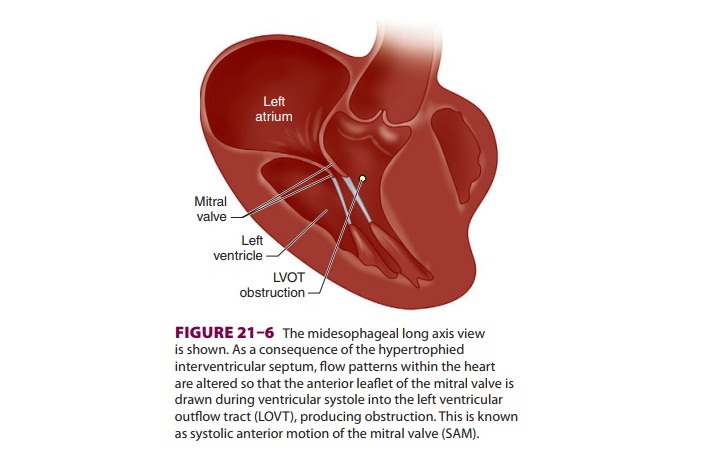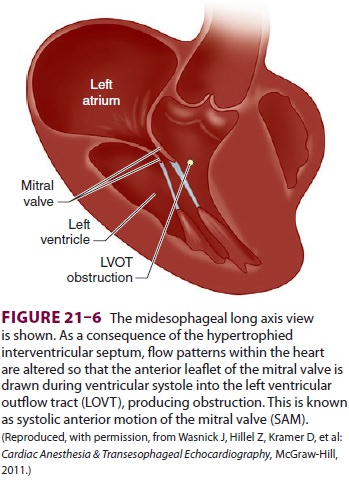Chapter: Clinical Anesthesiology: Anesthetic Management: Anesthesia for Patients with Cardiovascular Disease
Hypertrophic Cardiomyopathy

HYPERTROPHIC CARDIOMYOPATHY
Hypertrophic cardiomyopathy (HCM) is an
auto-somal dominant trait that affects 1 in 500 adults. Many patients are
unaware of the condition, and some will present with SCD as an initial manifesta-tion.
Symptoms include dyspnea, exercise intoler-ance, palpitations, and chest pain.
Clinically, HCM is detected by the murmur of dynamic left ventricu-lar outflow
tract (LVOT) obstruction in late systole. Symptomatic patients frequently have
a thickened intraventricular septum of 20 to 30 mm. Mutations in the genes that
code for the cardiac sarcomeres and their supporting proteins are implicated.
The myo-cardium of the intraventricular septum is abnormal, and many patients
can develop diastolic dysfunction and SCD without pronounced dynamic
obstruc-tive gradients. During systole, the anterior leaflet of

the mitral valve abuts the
intraventricular septum (Figure 21–6), producing obstruction and a late
systolic murmur.
Perioperative management is aimed at
mini-mizing the degree of LVOT obstruction. This is accomplished by maintaining
adequate intravas-cular volume, avoiding vasodilatation, and reduc-ing
myocardial contractility through the use of β-blockers.
Related Topics